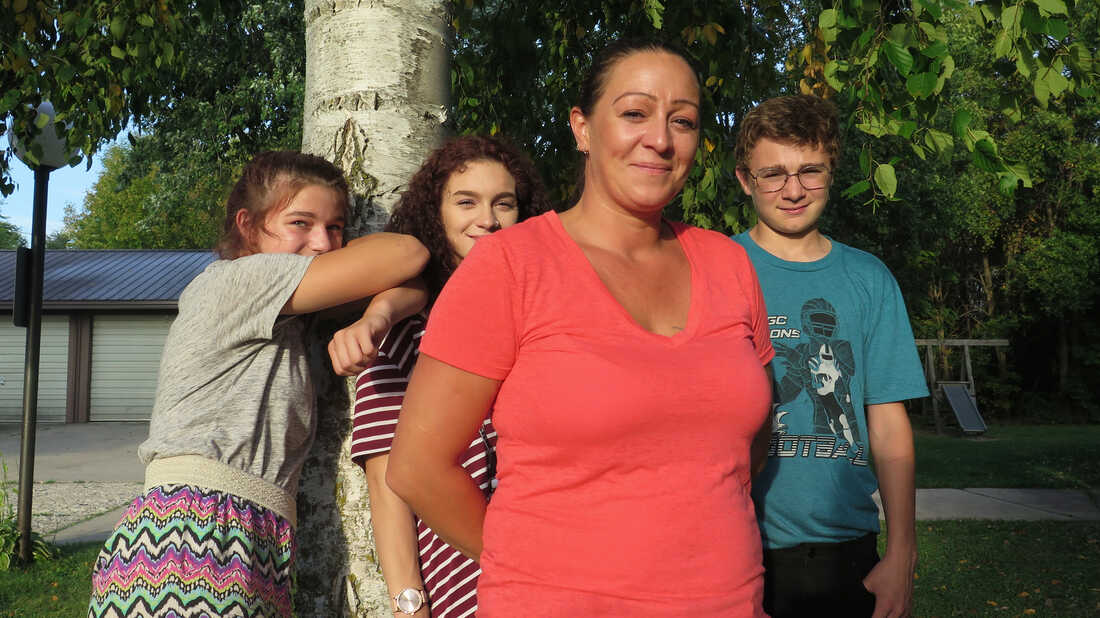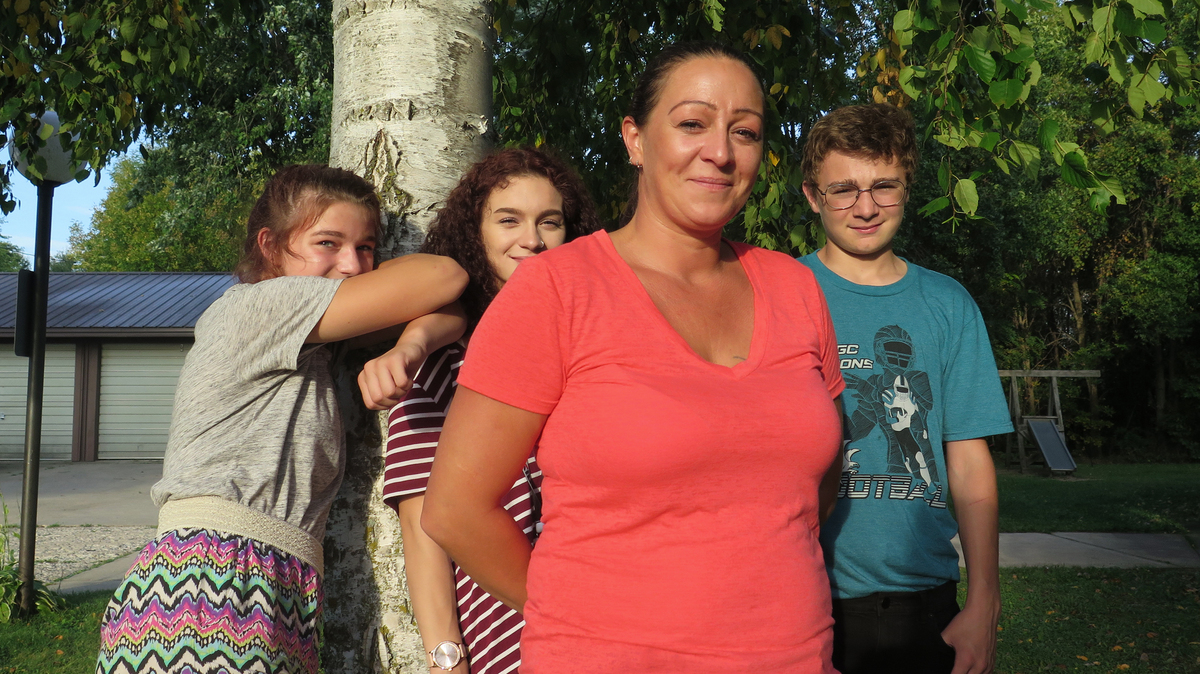
Daisy Hohman was separated from her three children for 20 months when they were placed in foster care. When Hohman was reunited with her children, she received a bill of nearly $20,000 for foster care from her Minnesota county. Joseph Shapiro/NPR hide caption

Daisy Hohman was separated from her three children for 20 months when they were placed in foster care. When Hohman was reunited with her children, she received a bill of nearly $20,000 for foster care from her Minnesota county.
Joseph Shapiro/NPRAn NPR investigation digs into the practice of billing parents for their children's foster care — something that happens in every state in the country.
It's a bill many cannot afford to pay, which in turn makes it even more difficult for parents to get their lives back on track and reunite with their children. On top of that, research shows government actually loses money when it tries to collect on foster care bills.
NPR investigative correspondent Joseph Shapiro reports, in collaboration with Teresa Wiltz of POLITICO.
Email us at
This episode was produced by Meg Anderson, Brent Baughman, Lee Hale, and Mia Venkat. It was edited by Bruce Auster and Ashley Brown. Our executive producer is Cara Tallo.

 Live Radio
Live Radio